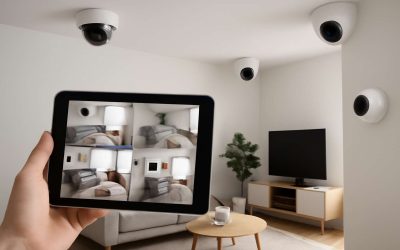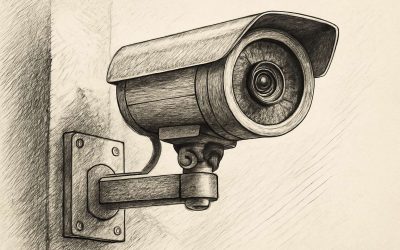CCTV, or closed circuit television, is a security camera system used to keep a watchful eye on your property. These systems include monitors and cameras that record and archive footage for later viewing. The system is also designed to work with other security measures such as intrusion-detection devices and alarms.
Choosing the Right Cameras
One of the first decisions you will have to make is whether you want wired or wireless security cameras. Wired systems can be easier to install, but wireless models are much more versatile and easy to use. The type of cameras you choose will depend on where you want to place them, as well as your budget.
The next step is selecting a camera and monitor, or display unit. A display unit can range from a simple monochrome screen to a high-definition color monitor.
A monitor is arguably the most important component of your CCTV system, and it helps you view the footage from the cameras as it’s being recorded. It can also let you view the cameras’ video feed remotely from a computer or smartphone.
Hard Disks for CCTV Storage
You will need a hard disk that can handle the large amount of data your security cameras store, so it’s important to pick one that has been specially designed for this purpose. Regular computer hard drives aren’t equipped to handle the demands of a CCTV system, and you may find yourself constantly buying more storage space as your footage fills up.
Another thing to consider when choosing a storage device is the ability of the system to run non-stop, without interruption, from multiple feeds. This is especially important for a NVR or DVR, as they will need to be able to play back the videos of your security cameras at all times, and to record new footage to the system when needed.
Moreover, it’s important to note that many security cameras are motion-activated, meaning they will only record when they detect movement or when they send you an alert. This can be helpful if you have kids or pets in the home, as it may help you catch intruders while they’re still at your house.
Encryption for your cameras
Finally, when it comes to securing your CCTV footage, make sure your system uses AES-256 bit encryption for all of the footage it captures. This will ensure that no one can view the footage, even if they have access to the camera itself.
As with all things in the tech world, there are plenty of options to choose from, so it’s best to shop around for a system that offers what you need at a price you can afford. It’s also a good idea to look at the company’s track record of security breaches, as these can give you some peace of mind.



0 Comments